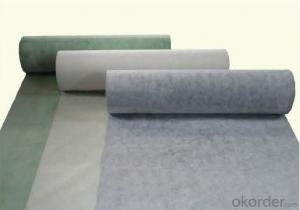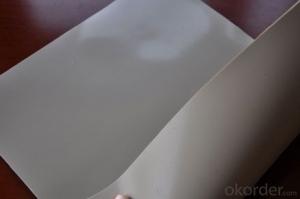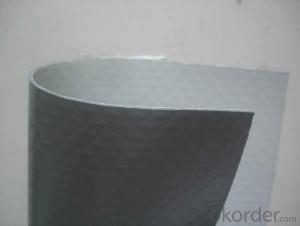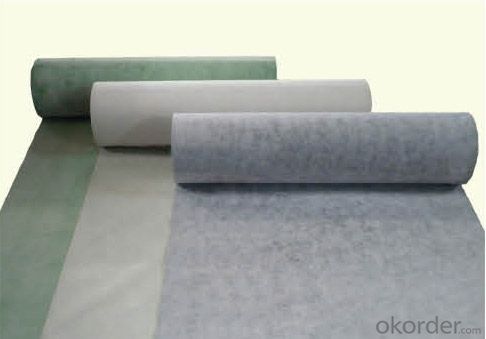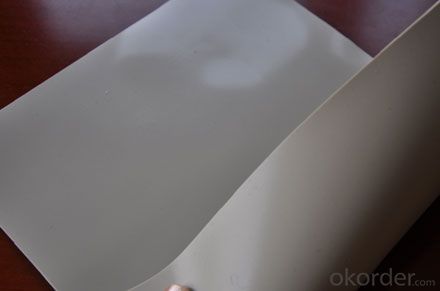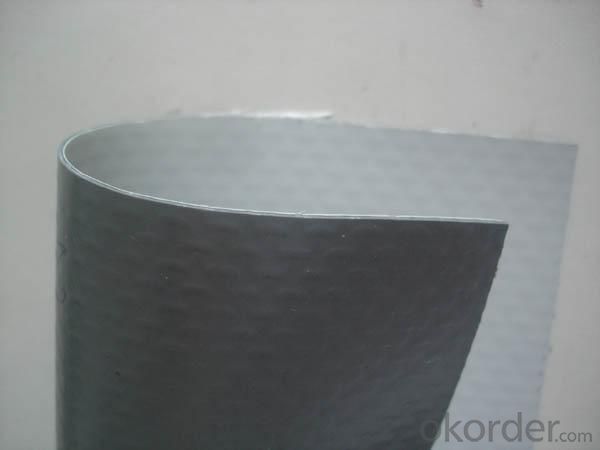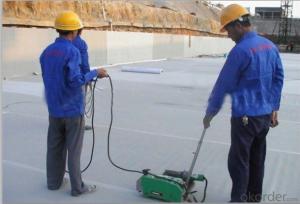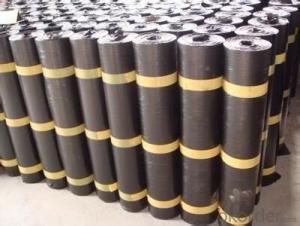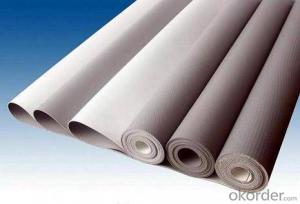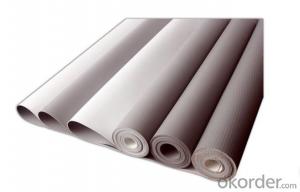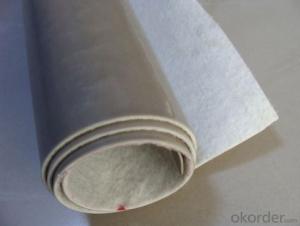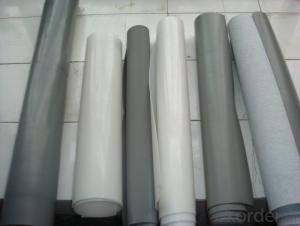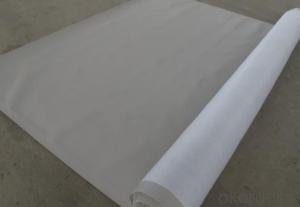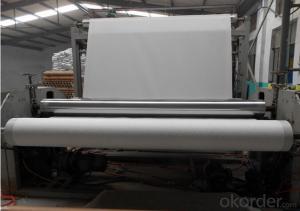Polyvinyl Chloride Coated Waterproof Membrane
- Loading Port:
- China main port
- Payment Terms:
- TT OR LC
- Min Order Qty:
- 5000 m²
- Supply Capability:
- 100000 m²/month
OKorder Service Pledge
OKorder Financial Service
You Might Also Like
Specification of PVC Waterproofing Membrane
Length | 20m/roll or customized |
Width | 2.05m |
Thickness | 1.2mm; 1.5mm; 2.0mm |
Type | Homogeneous, Reinforced, Fabric back |
If Exposed | Exposed and Non-exposed |
Color | White, Grey or customized |
Introduction of PVC Waterproofing Membrane
Polyvinyl Chloride (PVC) waterproof membrane is a new polymer waterproof membrane which is made from polyvinyl chloride resin, and mixed with plasticizer, filler, antioxygen, ultraviolet absorber and other auxiliaries.
Advantages of PVC Waterproofing Membrane
1. Lower cost for installation and maintaining than other material
2. Easy installation and good connection
(Short installation period, easy to be connected with other buildings)
3. Water-proof, anti-leakage and anti-UV
4. Long time-lasting for use, anti-aging and strong self-clean ability
5. Good weather resistance and high tearing strength
(Resist against 12 grade typhoon)
6. For different weight, width, colours and thickness, we can arrange as special requirement.
Used for the tent of outdoor exhibition hall and canopy of overpass.
Character: waterproof, PVC coated, easy installation
FAQ of PVC Waterproofing Membrane
a.Can we get some samples before place order?
Answer: We can send the free samples to you by freight collect.
b.How many years can your PVC membrane guarantee?
Answer: We will guarantee the quality for 5 years at least.
c.Which countries you ever export the product?
Answer: We export the PVC membrane to South Africa, Middle east and even European countries.
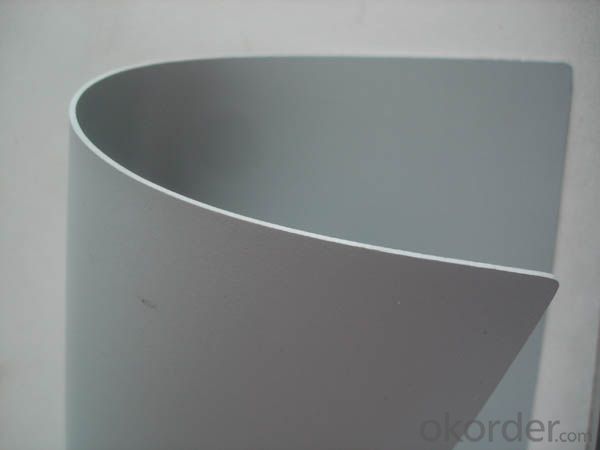
- Q: Can a waterproofing membrane be used in bridge decks or roadways?
- Yes, a waterproofing membrane can be used in bridge decks or roadways to enhance durability, prevent water damage, and extend the lifespan of the structure.
- Q: Can a waterproofing membrane be used for loading docks and warehouses?
- Yes, a waterproofing membrane can be used for loading docks and warehouses. Waterproofing membranes are commonly used in these areas to prevent water infiltration and protect the building's structure and contents from moisture damage. They create a watertight barrier that helps to maintain a dry and safe environment for the storage and movement of goods.
- Q: What is the preferred level of waterproofing?
- , roof level 1 waterproof: Application: particularly important or waterproof with special requirements of the building; Waterproof layer of reasonable use of life: 25 years; Waterproof layer selection of materials: should use synthetic polymer waterproofing membrane, polymer modified asphalt waterproofing membrane, metal sheet, synthetic polymer waterproof coating, fine stone concrete and other materials; Fortification requirements: three or more than three waterproof fortification.
- Q: Can a waterproofing membrane be used for a swimming pool liner installation?
- Yes, a waterproofing membrane can be used for a swimming pool liner installation. Waterproofing membranes are designed to create a waterproof barrier and prevent water from seeping through. This makes them an ideal choice for lining swimming pools as they can effectively protect the pool structure from water damage.
- Q: Can a waterproofing membrane be used on retaining walls?
- Yes, a waterproofing membrane can be used on retaining walls. Waterproofing membranes are commonly applied to retaining walls to prevent water penetration and potential damage to the structure. They help create a barrier that prevents moisture from seeping into the wall and causing erosion, cracking, or weakening of the materials.
- Q: Can a waterproofing membrane be used in steam rooms?
- Yes, a waterproofing membrane can be used in steam rooms. Steam rooms generate high levels of moisture and heat, which can cause damage to the walls and floors. A waterproofing membrane creates a barrier that prevents moisture from seeping through and protects the underlying structure. It is essential to choose a membrane specifically designed for steam room application to ensure proper performance and durability.
- Q: Can a waterproofing membrane be used in balconies or decks?
- Waterproofing membranes can be utilized in balconies or decks to prevent water penetration and safeguard underlying structures against moisture damage. Balconies and decks are frequently exposed to various weather conditions, including rain and snow, which can result in water damage and deterioration. By installing a waterproofing membrane, a barrier is established that hinders water from seeping into the underlying structure, ensuring its long-lasting and sturdy nature. Moreover, waterproofing membranes also provide protection against other forms of water damage, such as the growth of mold and mildew, which can compromise the integrity of the balcony or deck. In summary, the use of a waterproofing membrane is an efficient solution to maintain the functionality and prolong the lifespan of balconies or decks.
- Q: Can a waterproofing membrane be exposed to extreme temperatures?
- Yes, a waterproofing membrane can be exposed to extreme temperatures. Waterproofing membranes are designed to withstand a wide range of temperatures, including extreme cold and heat, without being damaged or compromised. They are specifically manufactured to provide effective waterproofing and protection in various environmental conditions.
- Q: Can a waterproofing membrane be used for residential swimming pools?
- Yes, a waterproofing membrane can be used for residential swimming pools. These membranes are specifically designed to provide a water-resistant barrier, preventing leakage and protecting the structure of the pool. Waterproofing membranes are commonly used in various applications, including swimming pools, to ensure durability and longevity of the pool.
- Q: Can a waterproofing membrane be used on insulation surfaces?
- Yes, a waterproofing membrane can be used on insulation surfaces. It provides an additional layer of protection to prevent moisture infiltration and damage to the insulation material.
Send your message to us
Polyvinyl Chloride Coated Waterproof Membrane
- Loading Port:
- China main port
- Payment Terms:
- TT OR LC
- Min Order Qty:
- 5000 m²
- Supply Capability:
- 100000 m²/month
OKorder Service Pledge
OKorder Financial Service
Similar products
Hot products
Hot Searches
Related keywords
